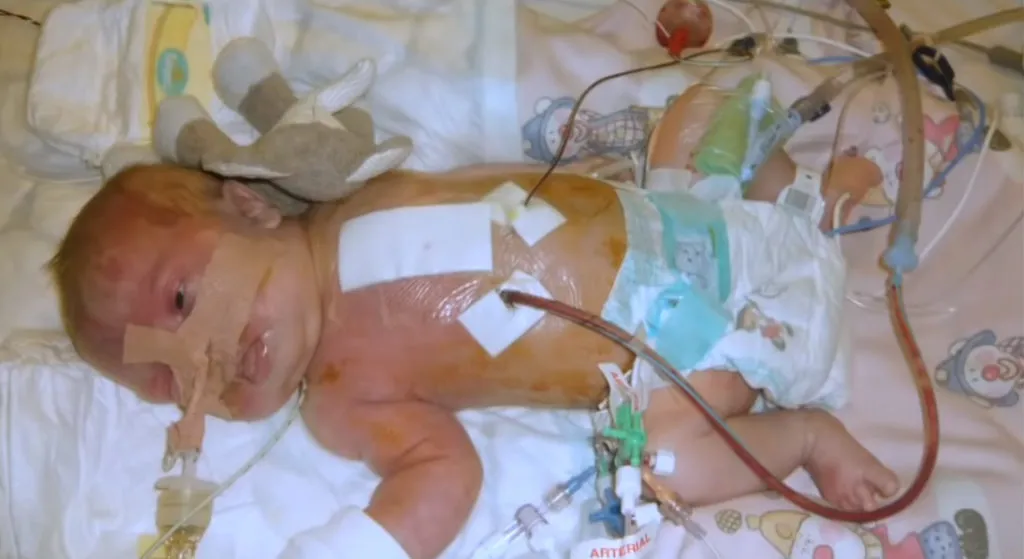
Every expectant parent dreams of a healthy baby and a joyful childhood. Unfortunately, Paul and Rebecca Callaghan’s journey took an unexpected turn. Their daughter faced complications in the womb and was born prematurely. However, neither the doctors nor the parents were prepared for the full extent of her health condition, which only became clear once she entered the world.
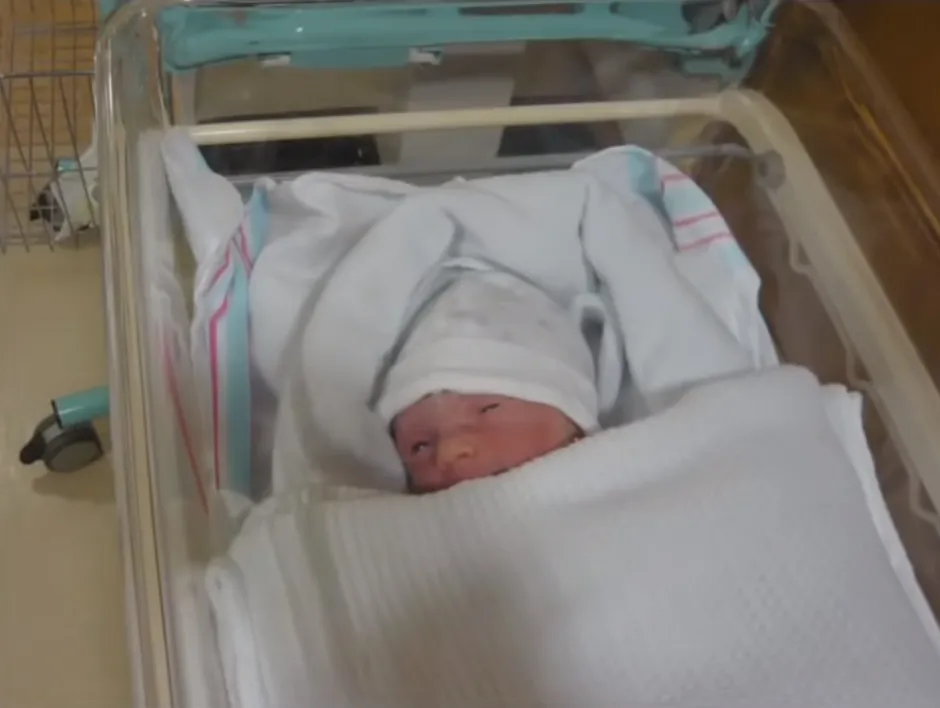
Little Matilda Rose Callaghan has faced more challenges in her young life than most could imagine, and she continues to fight every day. But through it all, she’s shown incredible bravery, with her devoted parents by her side every step of the way.
When Matilda was born, doctors immediately noticed dark blue and red marks covering her face. At first, they assumed the marks were bruises from the birth process, but soon it became clear that these marks were far more serious—and they weren’t going to fade anytime soon.
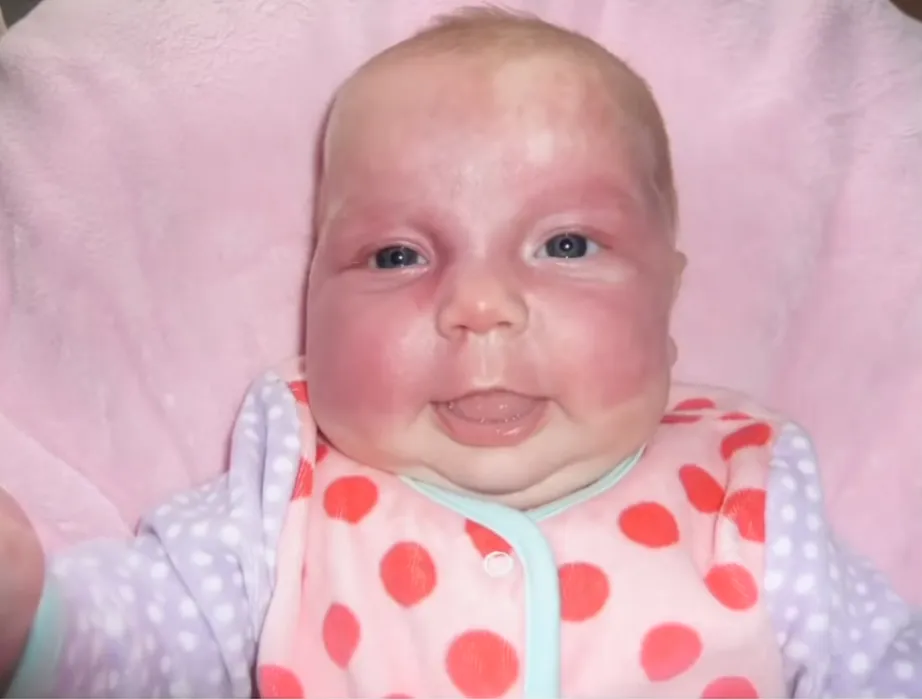
In her early days, Matilda underwent numerous surgeries and even stopped breathing twice, requiring medics to bring her back. After a series of tests, doctors discovered that the marks on her face were linked to two serious conditions: Trachea Oesophageal Fistula (TOF) and Sturge-Weber Syndrome. The latter is a neurological disorder that causes distinctive port-wine stains on the forehead, scalp, or around the eyes, caused by an excess of capillaries near the skin’s surface.
Sadly, these conditions meant that Matilda would face a lifetime of challenges, including glaucoma, seizures, weakness on the left side of her body, and potential learning disabilities. But through it all, she remains a fighter.
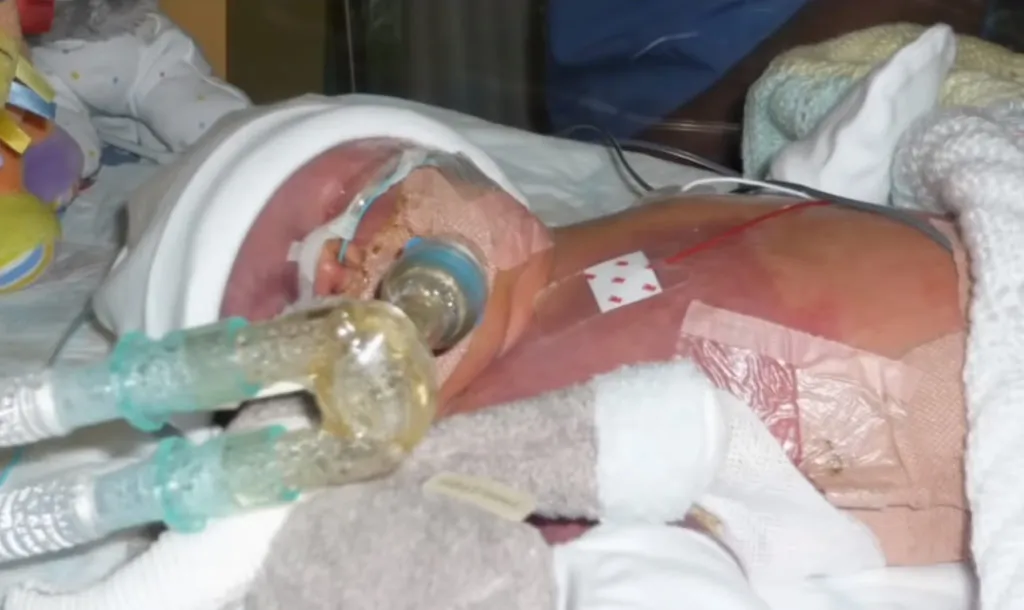
To prevent Matilda’s birthmarks from spreading and potentially affecting her brain or other organs, she had to begin laser treatments. These treatments, which she’ll continue until she turns 16, leave behind small polka dot marks on her face. While the marks fade after about three weeks, Matilda receives laser treatments every two months, meaning her face is often covered in these temporary dots. Despite the discomfort, she faces each session with remarkable resilience.
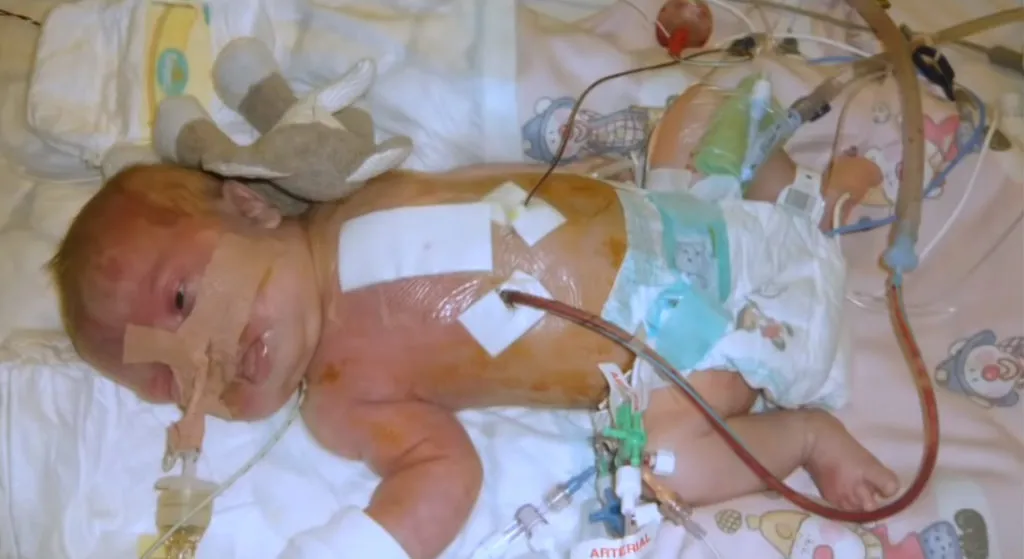
Whenever Matilda is out with her parents, strangers often stare, and their uncomfortable glances are accompanied by assumptions that the marks on her face are the result of abuse or violence. These reactions break the Callaghans’ hearts, especially knowing that Matilda is far too young to fully understand her condition. Yet, they worry that as she grows older, the constant stares and cruel comments could deeply impact her self-confidence.
Matilda’s father is determined to set the record straight, hoping people will understand the truth behind his daughter’s appearance. He says, “They only see what’s in front of them and jump to hurtful conclusions. I wish they could look beyond the birthmarks and see the incredible little angel she truly is.”
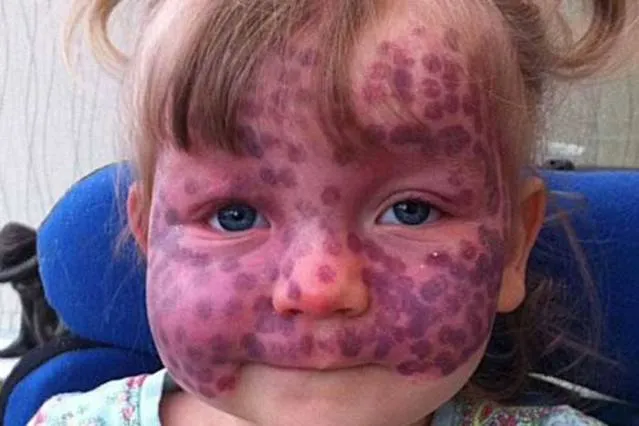
Matilda may struggle to walk on her own and face challenges with communication, but her parents are unwavering in their commitment to giving her the best life possible. Their love for her is boundless—they would do anything for her, fighting alongside her every step of the way. Through every challenge, the Callaghans are there, offering Matilda the support and love she needs to face her journey with strength and resilience.
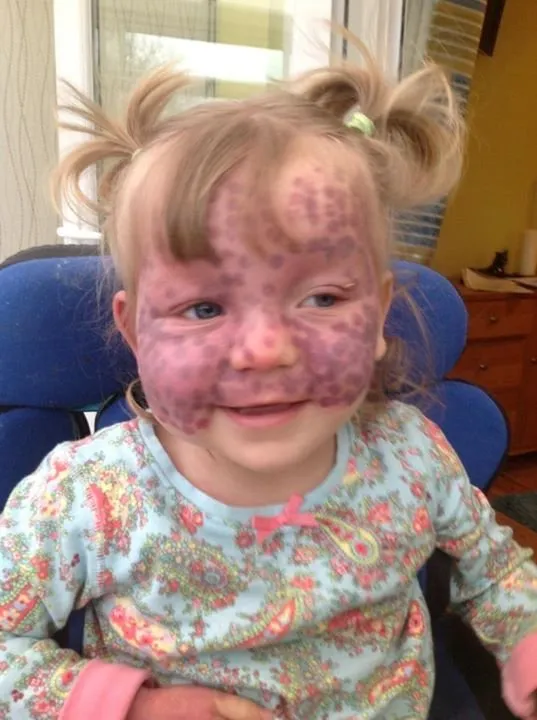
The Callaghans share Matilda’s story because they want others to understand the daily obstacles they face. By raising awareness, they hope to foster greater empathy and kindness, helping people see beyond the surface and recognize the strength and love that define their daughter’s journey.